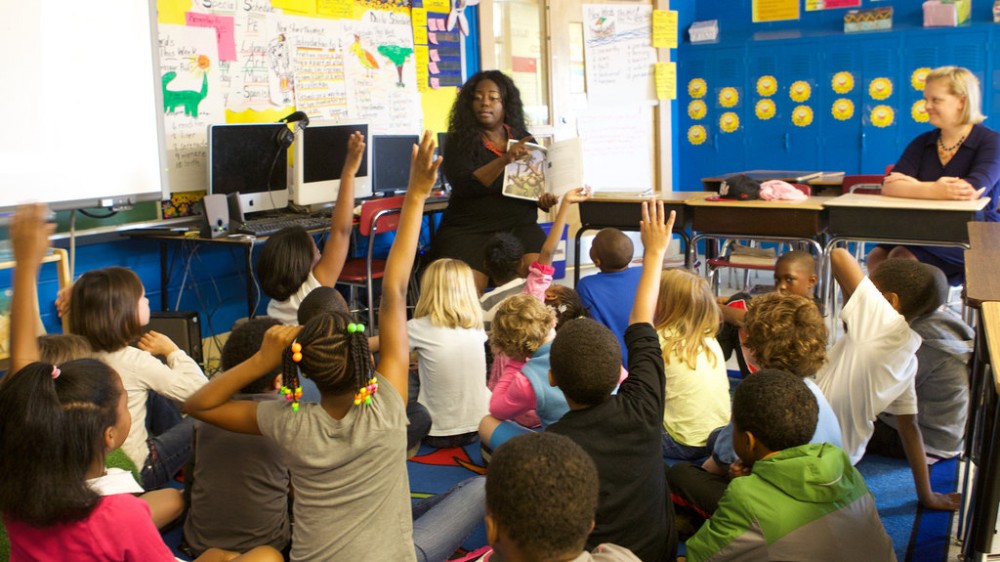Public education is a public good
State governments have been cutting funding for schools. Many teachers have had enough.

The vast majority of American children attend public school, and for many it’s the only viable option. Maybe they can’t afford private school, even with the help of a voucher. Maybe they have a disability that nearby charter schools aren’t equipped to accommodate or a behavioral issue they aren’t willing to. There is one kind of school that by definition neither charges tuition nor turns people away: traditional public schools.
Public education is a public good. It embodies the public’s interest in having an informed citizenry. It is accountable to public oversight. Its successes and failures are defined by how well it serves the public, not by any profits it generates. And in a culture that’s broadly deferential to private ownership and control, in which inequality tends to be taken for granted, public schools stand out by taking all comers and striving to treat them as equals. Whatever its shortcomings, public education remains a major achievement, singular among American public institutions in ambition, reach, and scale.
Naturally it is often under fire. A significant number of Americans are skeptical of the very notion of a public good; these days, this skeptical view dominates many state governments. So the same core features that make public education so vital to our democratic fabric—it’s everywhere, and it accepts everyone—also make it too big for some elected officials to tolerate. For years, efforts claiming to improve or reform public education have often amounted to little more than chipping away at its funding.




